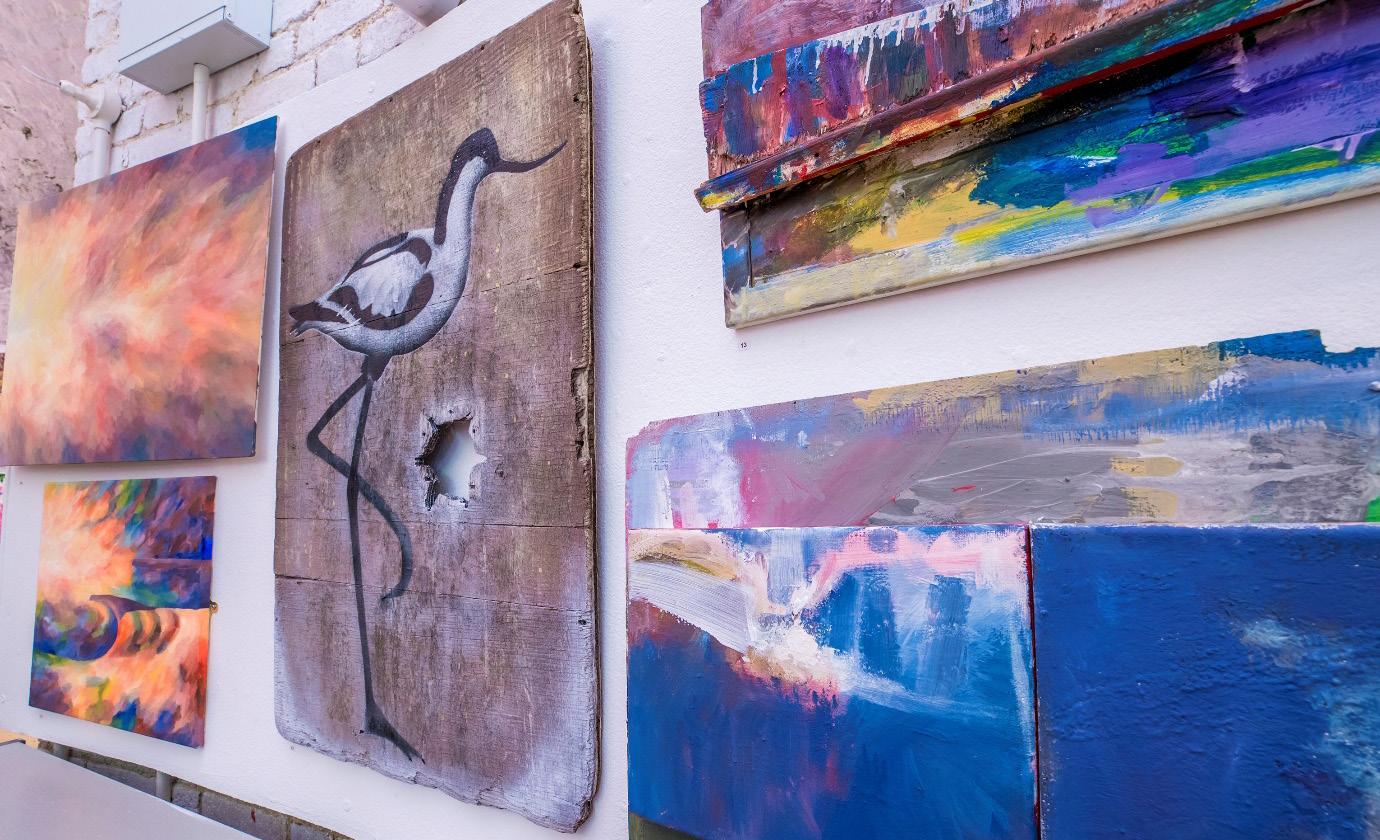
5 minute read
Mercury Rising
Steve Mannix, Chef Executive, Mercury Theatre

Mercury Rising, a five-year project to rejuvenate the Mercury Theatre in Colchester, was completed in June 2021. Here we talk to Chief Executive, Steve Mannix, about what the project entailed and what he hopes the future of The Mercury Theatre will look like.
How long did the Mercury Rising project take and what did it entail? The original Mercury Theatre building opened in 1972 but it was starting to show signs of age, so the Mercury Rising project started in the early summer of 2016 and we opened in June 2021, after delays due to the pandemic. Not only have we improved the experience for audiences and artists alike but for this is the first time in our history our staff all work under one roof. Now we have an onsite rehearsal space, dedicated space for our community and education programme, meeting rooms and we are now fully accessible. Throughout the project - which cost £11.6 million - we have been generously supported by Essex County Council, Colchester Borough Council, South East Local Enterprise Partnership (SELEP), Arts Council England, the European Regional Development Fund, Sport England, Trusts and Foundations and individual donors and sponsors. There were many overarching aims of the project – however, one was to improve the spaces and facilities that support the production and presentation of high-quality theatre and associated arts activities, by professional and non-professional artists. Following the project’s completion, we now have the opportunity to unlock major creative benefits for the Mercury, Colchester, Essex and East Anglia – as well as the wider theatre economy – which will cement the Mercury as a centre of national standing here in the East of England. Mercury Rising was an ambitious project, is there anything you are particularly proud of? I’m grateful to our staff, contractors and suppliers for all their hard work and dedication but I’m proud of many things. Firstly, from a budget of £11.6 million we spent £10 million in the local economy of north Essex. Throughout COVID-19, our project was a lifeline to many of these businesses, but they kept going. We really are a building ‘built by local people, for local people’. Next is that our new building achieved a BREEAM Environmental standard which means we are in the top 25% of sustainable buildings in the UK. Finally, I’m proud that our audiences and users love the spaces we’ve created, which they tell us every day. How much have you increased the capacity at the venue? We’ve increased the seating capacity of the main theatre by 47 seats and launched an all day/evening café/bar and catering operation - we’ve tried our best to source local produce from local suppliers – and as a charity all the profits from sales goes to support our work.




Also, there’s more space to hire for local groups and organisations – be it for meetings, shows or conferences. We’ve also created a dedicated creative learning space and an open plan office space for the theatre’s staff and resident partners along with installing 15 new hot desks for local artists and creative businesses. We’ve also transformed the exterior to create a plaza and open access to the Roman wall which runs adjacent to the theatre. Did the local arts and culture community play an important part during the project and if so, how? The local arts and culture community were vital in helping us with the project. Very early in the process we consulted a wide variety of groups about what they wanted such as onsite storage, the size of spaces, the overall ‘look and feel’, access for disabled people and the needs of children, young people and families. Now it’s a joy to see all those groups meeting weekly with us. How important are local community groups, art and grassroot organisations to the Mercury Theatre? Our local community is vital to our work. They say, ‘build it and they will come’ and it’s true. Would you believe that seven months after opening we’re running out of space? We have over 30 different community groups using our spaces each week –music and movement with tots, to senior clubs, two community choirs, dance classes, our Mercury Youth Theatre and even drag workshops. What do you see as the future of arts and culture in Colchester and Essex in general? As we all emerge from the impact of the pandemic it never been more important for us all to come together – whether that’s seeing a show, band or concert or going to a gallery. The arts bring us together. The arts and cultural scene in Colchester and throughout Essex have been hard hit but I genuinely feel optimistic for the future. Yes, these are tough times for us all but go and support your local arts scene. Do you have any interesting or exciting plans or productions for 2022? Some highlights include our summer family show ‘Alice in Wonderland’, our 2022 panto ‘Beauty and the Beast’ and we also have ‘The Green Mile’ - a world premier adapted from Stephen King’s novel. The Mercury Theatre is nearly 50 years old; do you have any special plans to celebrate the milestone moment? We are planning a wide range of events to celebrate our birthday this year. It’s actually the 50th anniversary of us being based in Balkerne Gardens, Colchester, but the organisation is actually 85 this year as we were originally founded in 1937 and based in the High Street. There will be all sorts of opportunities to join in the party, so see our website for all the latest news! For more information about the Mercury Theatre and its upcoming programme visit www.mercurytheatre.co.uk










